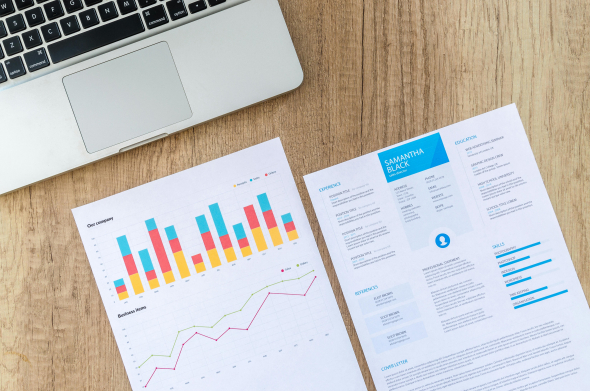Lets uncover what is digital marketing analytics and see how businesses are starting to reley on digital marketing and analytics to reach their target audiences.
TL;DR:
Digital marketing analytics is the process of analyzin and interpreting data from various digital marketing channels to optimize strategies and improve business performance. It includes web analytics, social media metrics, email campaign performance, and more. The most popular way to track everything in a centralized location is using a marketing dashboards
Benefits include improved ROI, enhanced customer understanding, and a more personalized marketing strategy. Digital marketing and analytics are essential for businesses to stay competitive and enabling them to make better decisions and drive growth through stronger strategies.
What is Digital Marketing Analytics?
Digital marketing analytics is the process of collecting, measuring and analyzing data from various digital marketing channels. The analytics gives an overview on optimizing marketing strategies and improve overall business performance. It combines the power of digital marketing techniques with data-driven insights to build more effective marketing campaigns.
At its core, it's a set of tools that help businesses understand how their online marketing efforts are performing. This includes tracking website traffic, social media engagement, email open rates, and conversion rates, among other metrics.
What is Data Analytics in Digital Marketing?
Data analytics in digital marketing involves the examination of raw data to draw meaningful conclusions about marketing performance.
- Identify any patterns and trends
- Predict future outcomes
- Optimizing marketing strategies based on data-driven insights
- What is web analytics in digital marketing?
Web analytics is anm important part of digital marketing analytics, mainly focusing on website performance. It involves tracking and analyzing any interactions on a website, such as user behavior on a webpage, including page views, bounce rates, and conversion rates.
Digital Marketing Analytics Tools
To effectively implement digital marketing analytics, businesses depend on various tools. Some popular options include:
Google Analytics: A comprehensive platform for web analytics in digital marketing
Ahrefs: An all-in-one tool for SEO, PPC, and social media analytics
Hootsuite: A social media management and analytics platform
Mailchimp: An email marketing platform with built-in analytics features
These analytics tools provide valuable insights into different aspects of your digital marketing efforts, helping you make data-driven decisions.
Looking to combine all that data effortlessly? Try Snipowland build live dashboards in seconds without integrations. Snip, build and track!
Digital Marketing Analytics Examples
what is digital marketing analytics? Let's look at some practical examples:
Website Traffic Analysis: Examining the number of visitors, their geographic location, and the pages they visit most frequently.
Conversion Rate Optimization: Analyzing user behavior to improve the percentage of visitors who take desired actions on your site.
Social Media Engagement Metrics: Tracking likes, shares, comments, and overall reach of your social media posts.
Email Campaign Performance: Measuring open rates, click-through rates, and conversion rates for email marketing campaigns.
Just a few examples how digital marketing and marketing analytics work together to provide a complete view of your online marketing performance.
What is Digital Media Analytics?
Digital media analytics is a subset of digital marketing analytics that focuses specifically on the performance of various digital media channels. This includes:
- Social media platforms
- Display advertising
- Video marketing
- Podcasts and other audio content
By analyzing these channels, businesses can optimize their content strategy and improve their overall digital media presence.
Benefits of Digital Marketing Analytics
Implementing digital marketing analytics can provide numerous advantages for businesses:
Data-Driven Decision Making: Analytics provide solid data to support marketing decisions, reducing guesswork and improving efficiency.
Return on investment: By understanding which marketing channels and campaigns are most effective, businesses can focus their resources efficiently.
Customer Understanding: Analytics offer data insights into customer behavior, preferences, and needs, allowing for more targeted approach to their marketing.
Competitive Advantage: Businesses that effectively use analytics digital marketing can stay ahead of competitors by quickly adapting to market trends.
Personalized Marketing: With detailed customer data, businesses can create more personalized and relevant marketing messages.
Implementing Digital Marketing Analytics
To use a digital marketing analytics effectively, consider the following:
Know Your Goals: Clearly outline what you want to achieve with your digital marketing efforts.
Select the Right Tools: Select analytics tools that align with your goals and provide the insights you need.
Tracking: Implement proper tracking codes and tags on your website and marketing channels.
Analyze the Data: Regularly review your digital marketing analytics dashboard to identify trends and areas for improvement.
Take Action: Use the data insights gained from your digital marketing analysis to optimize your marketing strategies.
In conclusion, digital marketing and analytics are essential components of any business strategy. By understanding what is digital marketing analytics and how to effectively implement it.
Remember, the key to success in digital marketing analytics is not just collecting data, but using it to make informed decisions that drive your business forward. By continually analyzing and optimizing your digital marketing efforts, you can stay ahead of the competition and hit milestones.
Frequently Asked Questions
Q: What is digital marketing analytics and what makes it different from traditional marketing analytics?
A: Digital marketing analytics focuses on data from online channels, like websites, social media, and email campaigns. Unlike traditional marketing analytics, which often depends on surveys and focus groups, digital analytics provides real-time data on customer behavior and campaign performance across various platforms.
Q: How can a digital marketing analytics dashboard improve your marketing efforts?
A: Digital marketing analytics dashboard provides an overview of key performance indicators (KPIs) across all your digital marketing channels. This gives digital marketers a quick view of trends and opportunities, enabling digtal marketers to make the right decisions swiftly and adjust strategies in the moment for the best results.
Q: What is web analytics in digital marketing, and why is it important?
A: Web analytics in digital marketing involves tracking and analyzing user behavior on your website. By understanding how users interact with your site, you can optimize the user experience and improve your conversion rates.
Q: How do digital marketing and marketing analytics work together to drive business growth?
A: Digital marketing and marketing analytics work with one another. Digital marketing provides the channels and strategies to reach and engage your audience, while marketing analytics offers the marketing insights needed to optimize these strategies.
Q: What are the lastest trends in analytics digital marketing?
A: The latest analytics digital marketing trends are:
- Analytics using AI and machine learning:
Ai analytics leverages historical data, statistical algorithms, and machine learning techniques to identify the likelihood of future outcomes. - Cross-device tracking:
This involves tracking user interactions across multiple devices (e.g., smartphones, tablets, desktops) to create a comprehensive profile of the customer journey. - Voice search analytics:
With the rise of voice-activated devices and assistants, voice search analytics is becoming increasingly important. - Privacy-focused analytics:
Privacy-focused analytics in response to data protection regulations: As regulations like GDPR and CCPA come into effect, privacy-focused analytics are becoming crucial.
Q: How often should we do a digital marketing analysis?
A: Doing a digital marketing analysis depends on your business needs and campaign cycles. However, it's generally recommended to:
- Monitor real-time metrics daily
- Have in-depth weekly or bi-weekly analyses for ongoing marketing campaigns
- Perform a monthly or quarterly reviews on the overall strategy
- Do annual audits to align analytics with long-term goals
Q: How can small companies benefit from digital marketing analytics tools?
A: Small companies can use analytics tools to:
- Understand their audience better
- Identify the most effective marketing channels
- Optimize their small marketing budget to get the best results
- Compete efficiently with larger competitors
Searching for a super easy way to build dasboards for analytics? SnipOwl gives you the power to seamlessly combine all your favorite websites or apps without integrations and build live dashboards in seconds. Imagine centralizing all your important data with snapshots that update and having it in one sleek, intuitive dashboard.
Found in:
Marketing



